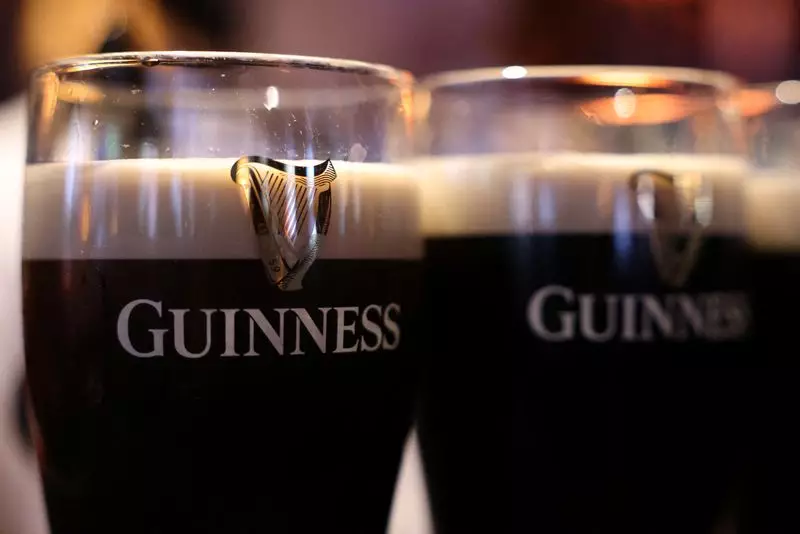Diageo, the premier global producer of spirits, finds itself at a crossroads as it contemplates the future of its beer brand, Guinness. Recent reports suggest that Diageo is considering a potential spin-off or sale of Guinness, alongside an assessment of its stake in the drinks division of luxury conglomerate LVMH, Moet Hennessy. This speculation, sourced from credible insiders by Bloomberg News, has ignited a wave of investor interest, with Diageo’s shares experiencing a notable 4% increase, thereby claiming the title of the highest gainer on the FTSE 100 index.
Despite being a flagship brand, Guinness stands apart within Diageo’s largely spirits-focused portfolio. This inconsistency raises many questions about the rationale behind considering a sale of its beer segment, especially given Guinness’s impressive performance that has consistently outpaced other Diageo brands like Johnnie Walker. Since the pandemic, while there has been a downturn in spirits sales, the demand for Guinness, particularly its zero-alcohol variant, has surged, indicating a favorable consumer trend towards this established brand.
The growth of Guinness is compelling; not only has it achieved double-digit growth annually since 2021, but its resilience in a challenging market poses an intriguing contrast to Diageo’s other offerings. Analysts speculate that with an estimated valuation exceeding $10 billion, Guinness could be a tempting asset for buyers. However, the reasons for selling an evidently successful brand are nebulous. Analysts such as Laurence Whyatt from Barclays express skepticism regarding the potential divestiture, highlighting that it is atypical for companies to relinquish their top performers.
Diageo’s contemplation of major strategic shifts comes at a significant time when consumer preferences are evolving. In developed markets, drinkers are increasingly pivoting from beer towards spirits and cocktails, which align with higher profit margins for Diageo’s liquor brands. Therefore, while the brewing segment may appear lucrative in certain contexts, the overall momentum shift towards spirits cannot be ignored.
Furthermore, Diageo’s CEO Debra Crew has previously expressed admiration for the Guinness brand, suggesting internal alignment with its core value proposition. This makes an eventual sale of Guinness seem perplexing. Additionally, Bloomberg’s insights into Diageo’s consideration to boost its stake in Moet Hennessy complicate the picture. Should Diageo choose to strengthen its position in the LVMH venture, it may need to contemplate a difficult decision concerning Guinness.
Diageo stands at a critical juncture with two pivotal decisions before it: the future of Guinness and its relationship with Moet Hennessy. While the current performance of Guinness presents a strong case for retaining the brand, market speculation continues to swirl. The upcoming months will likely reveal how Diageo intends to weave through these strategic dilemmas, balancing profitability with its rich legacy in the beverage industry. The stakes are high as the global spirits market evolves, and Diageo’s response could redefine its trajectory in an ever-competitive landscape.

